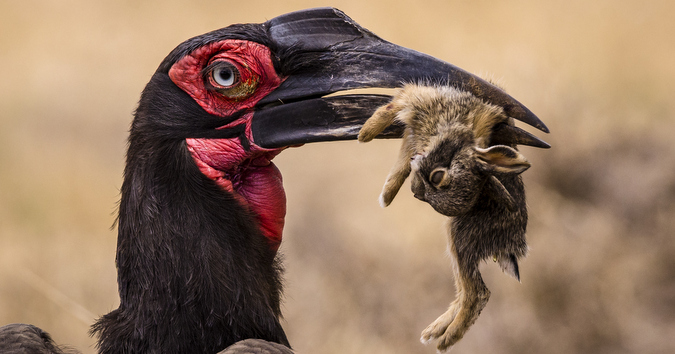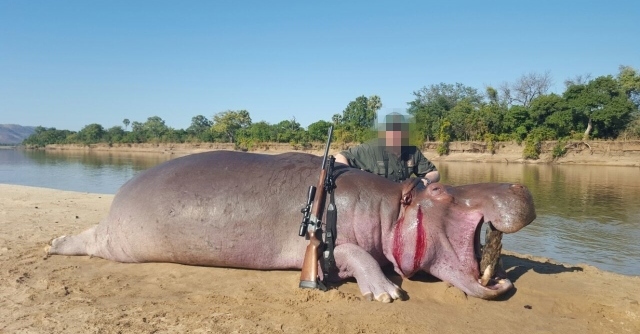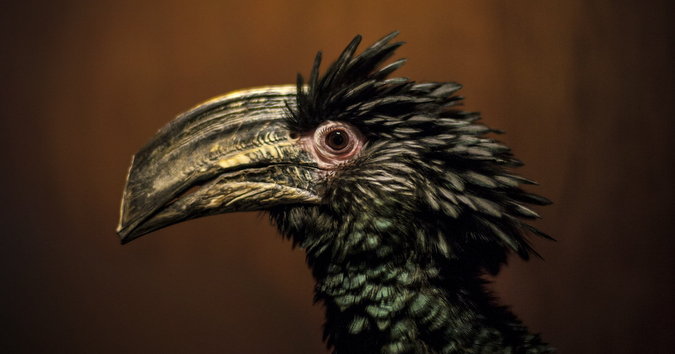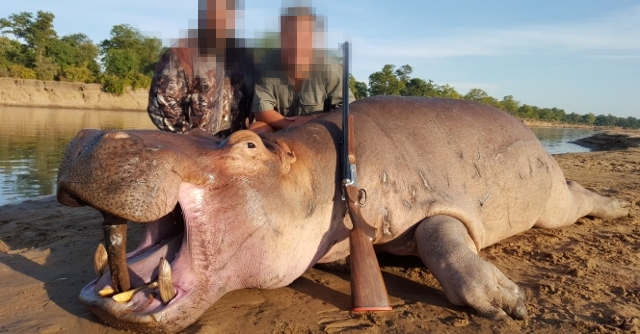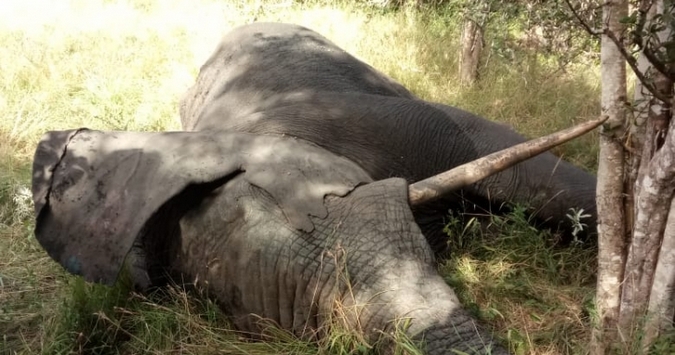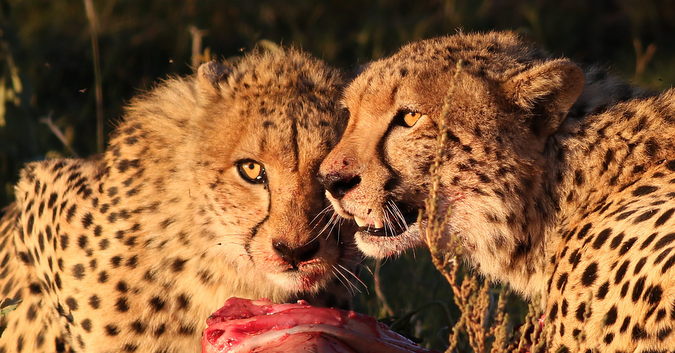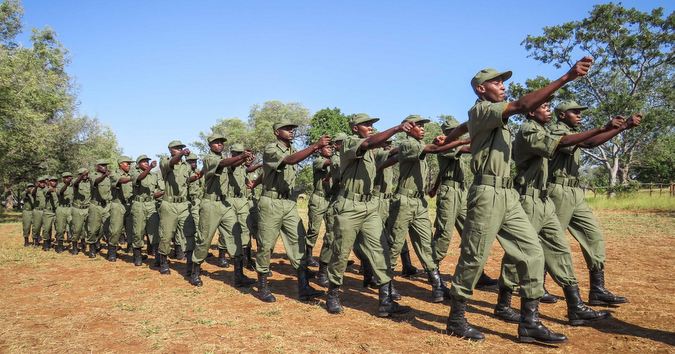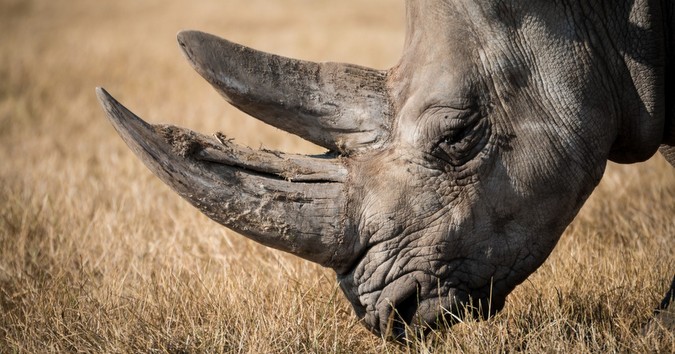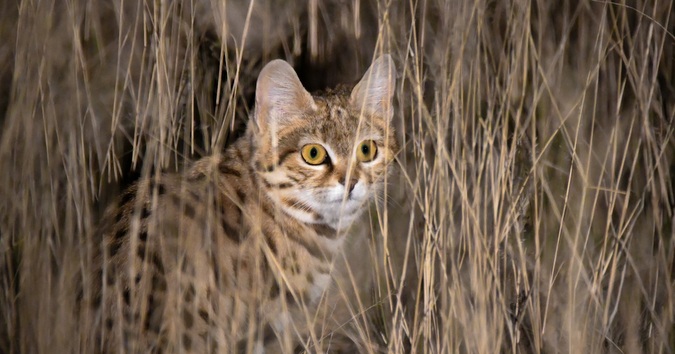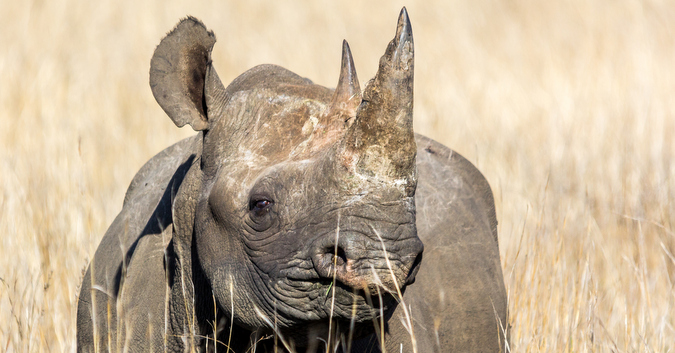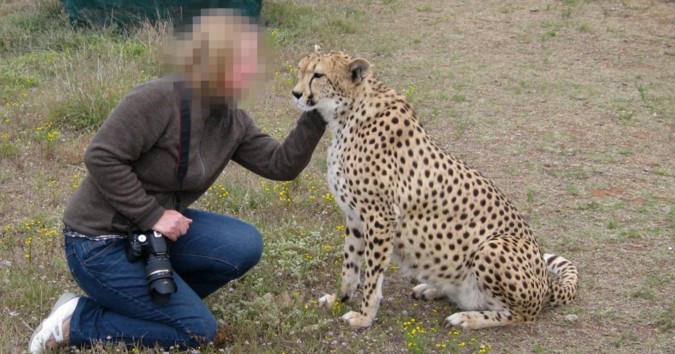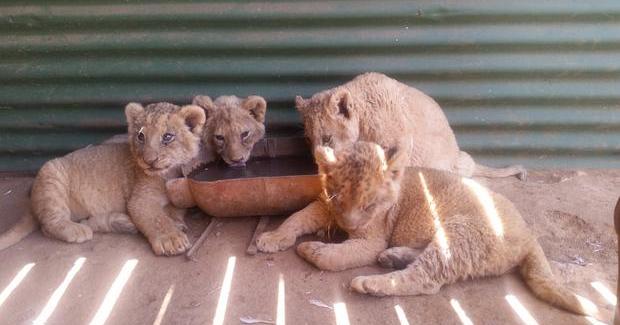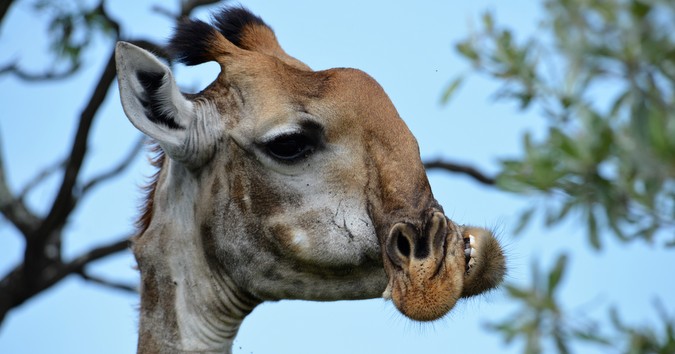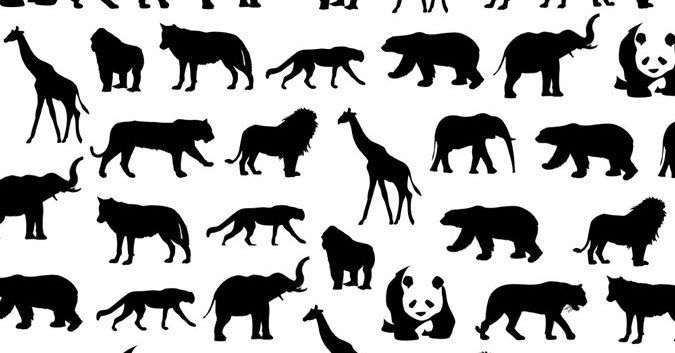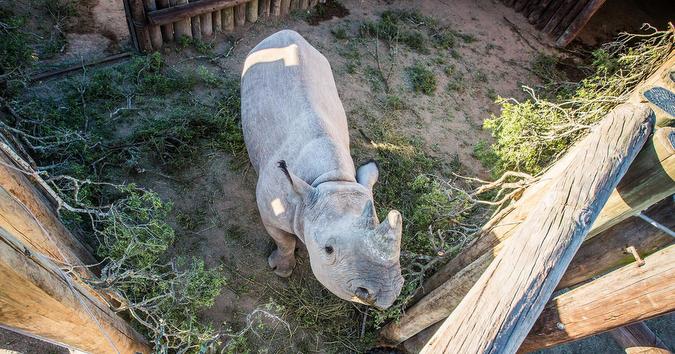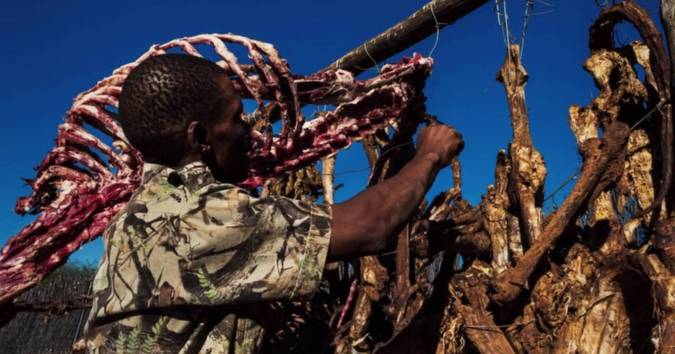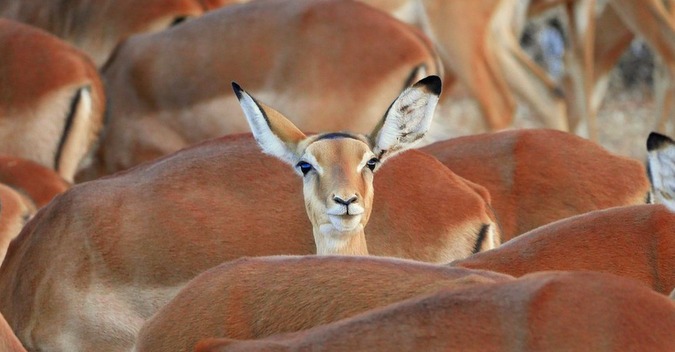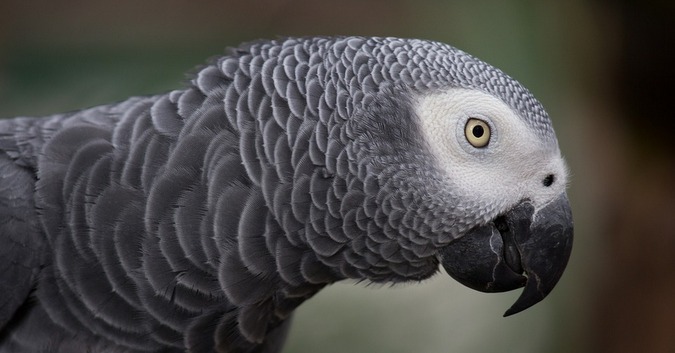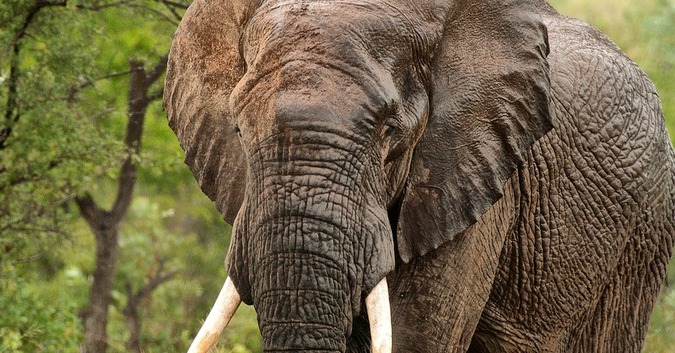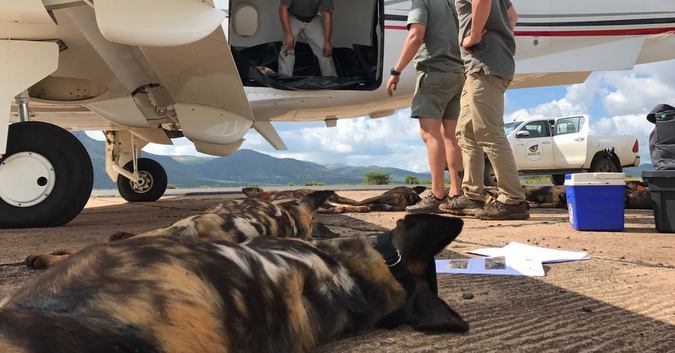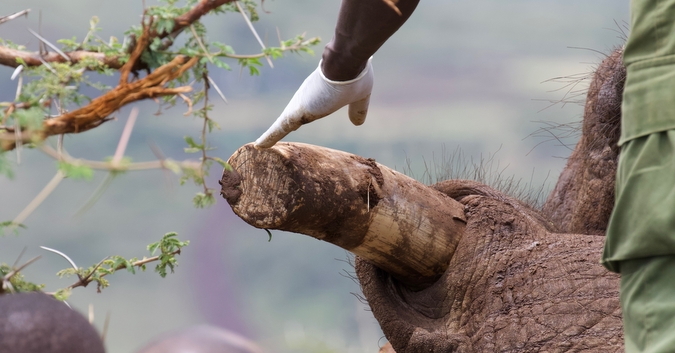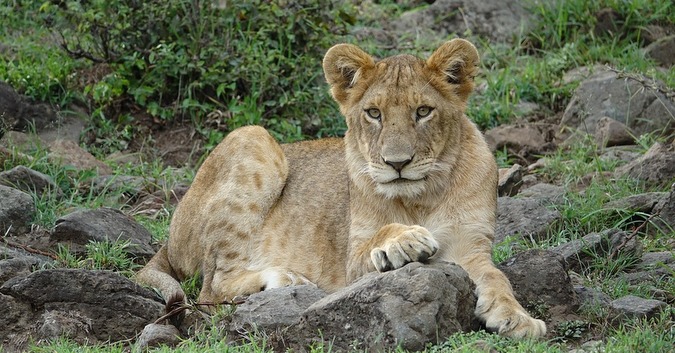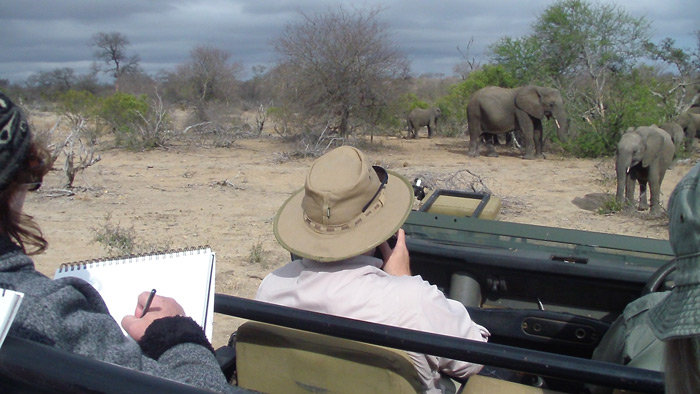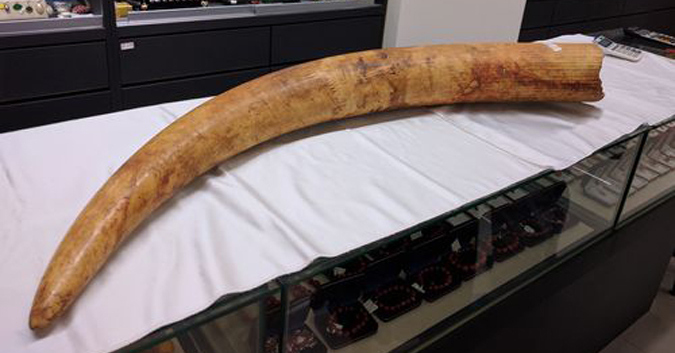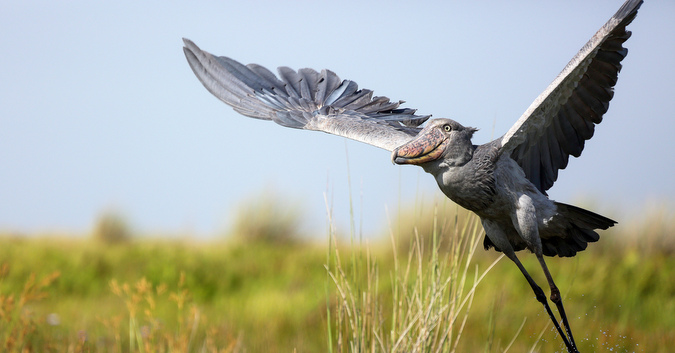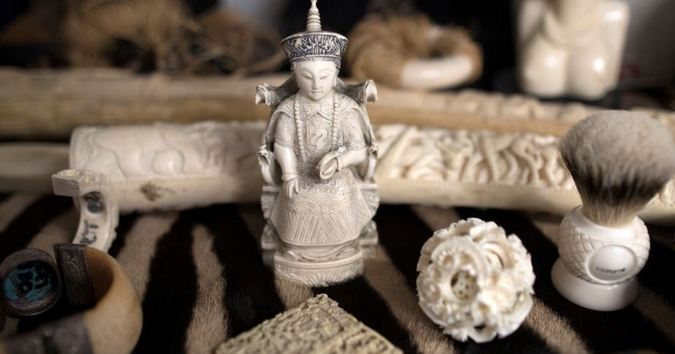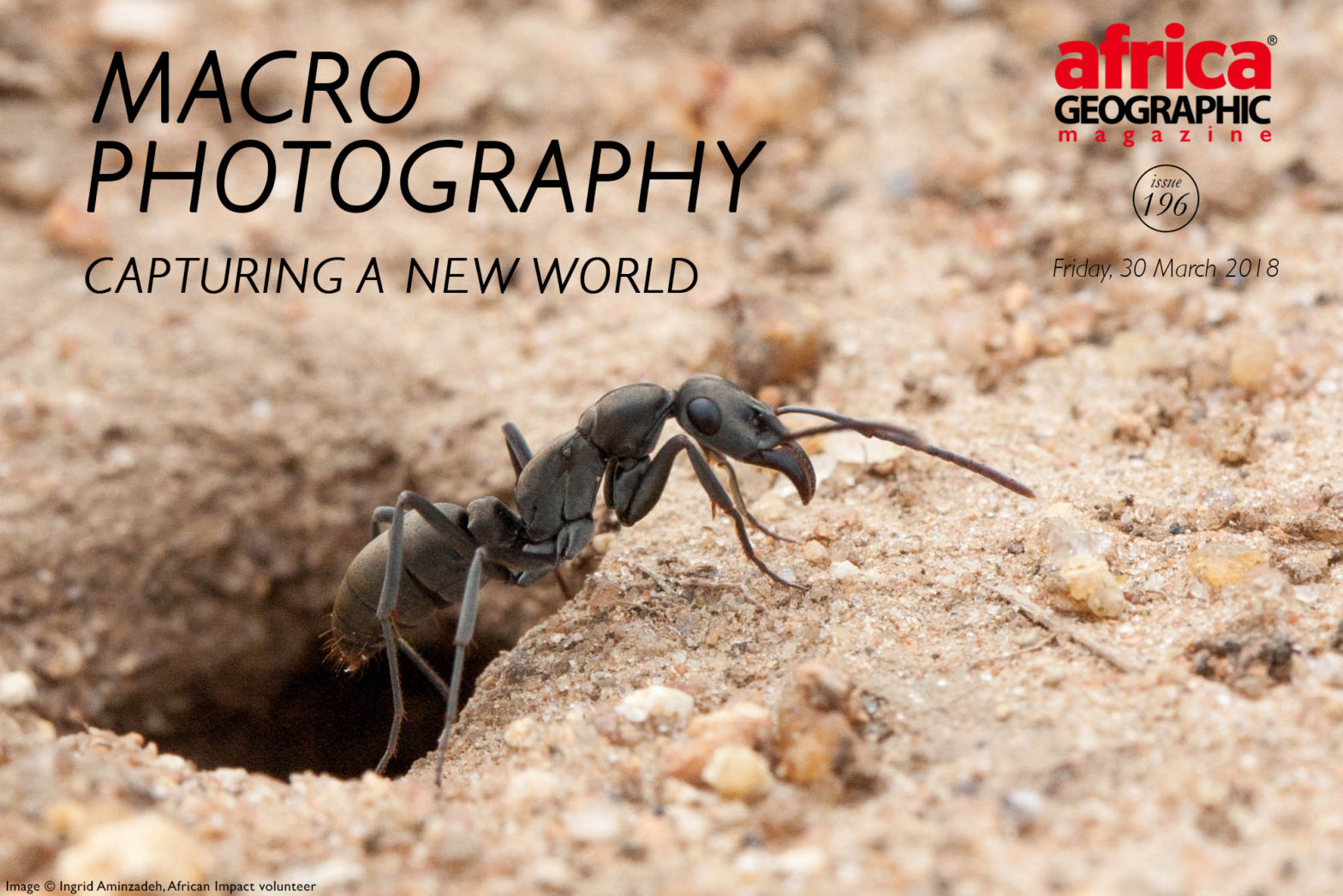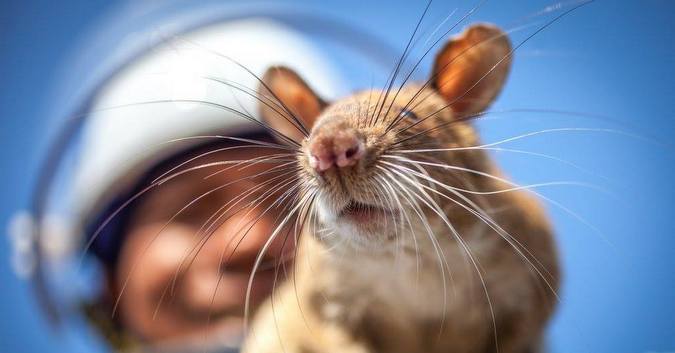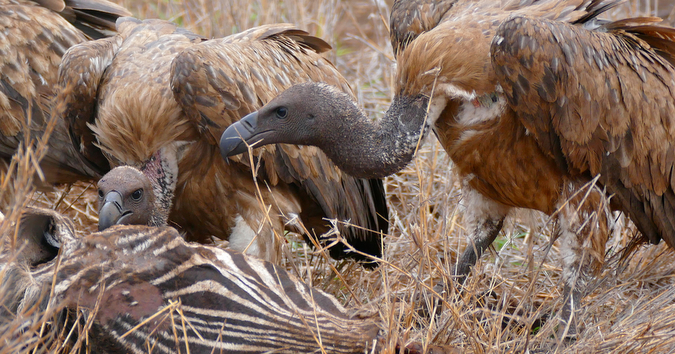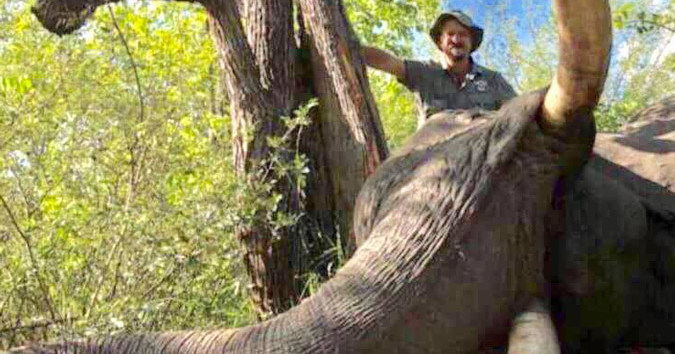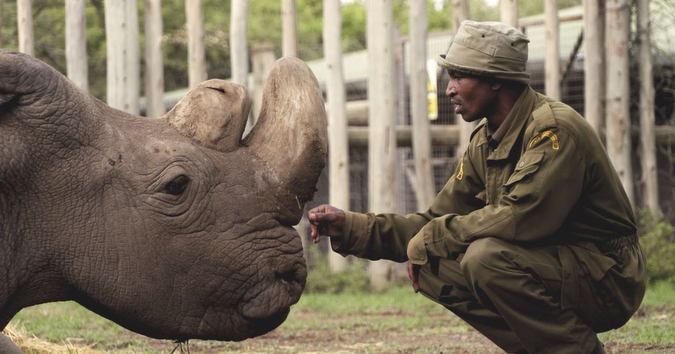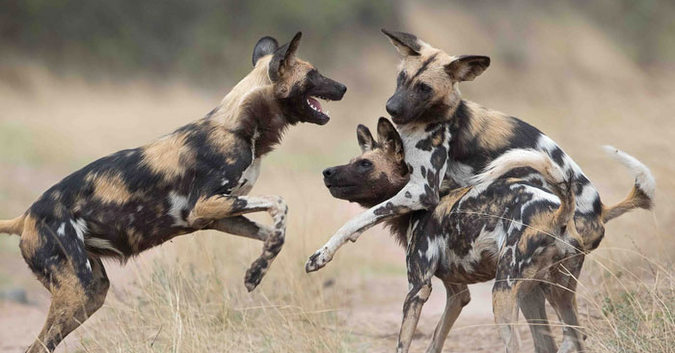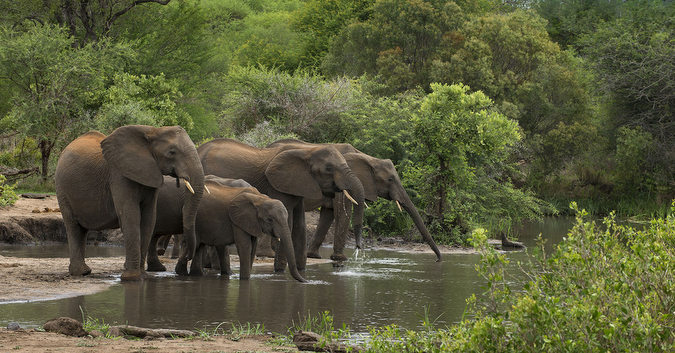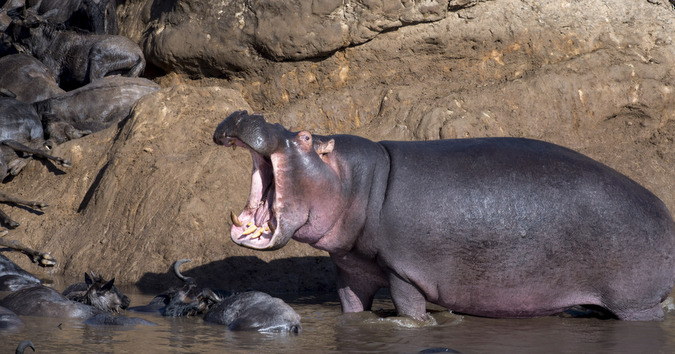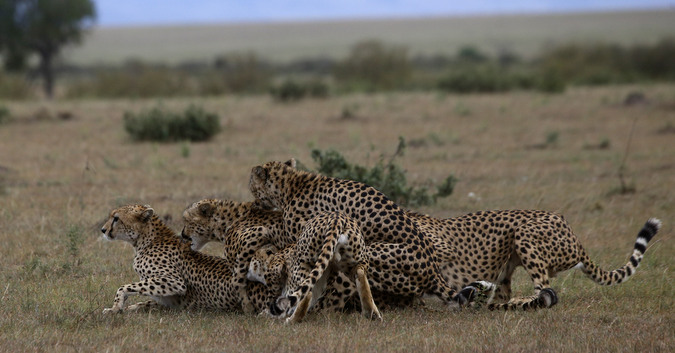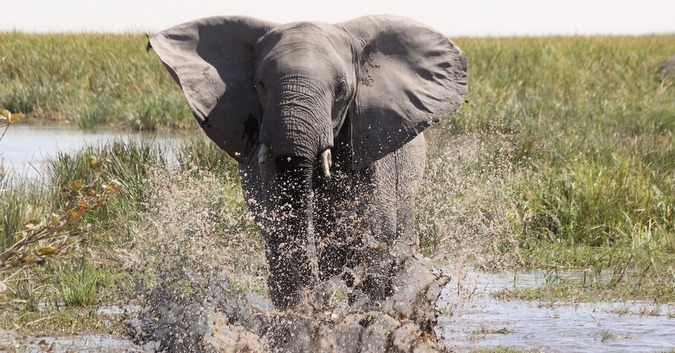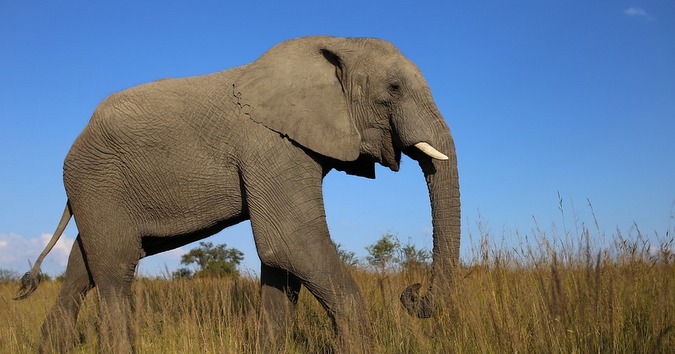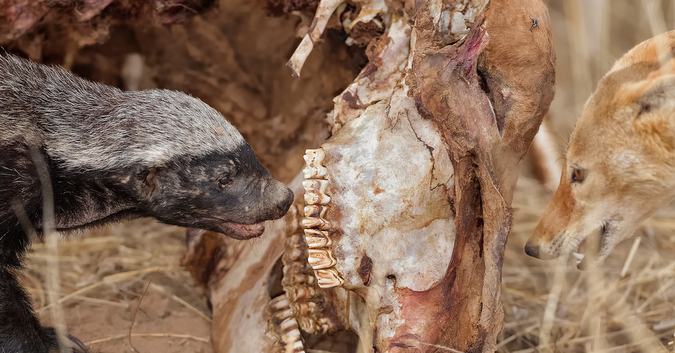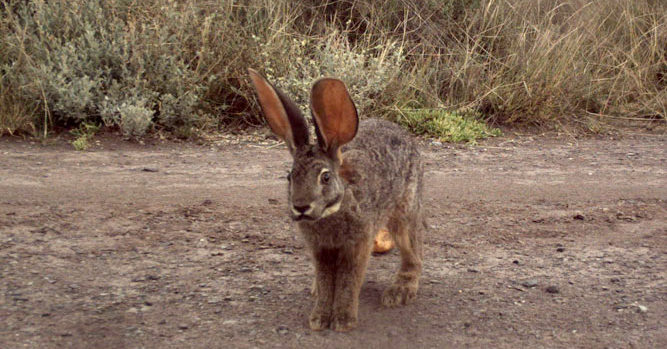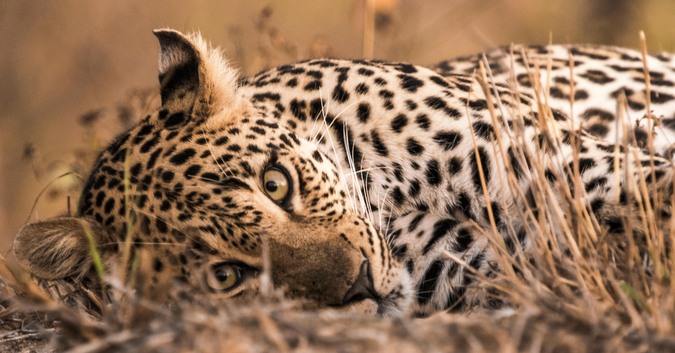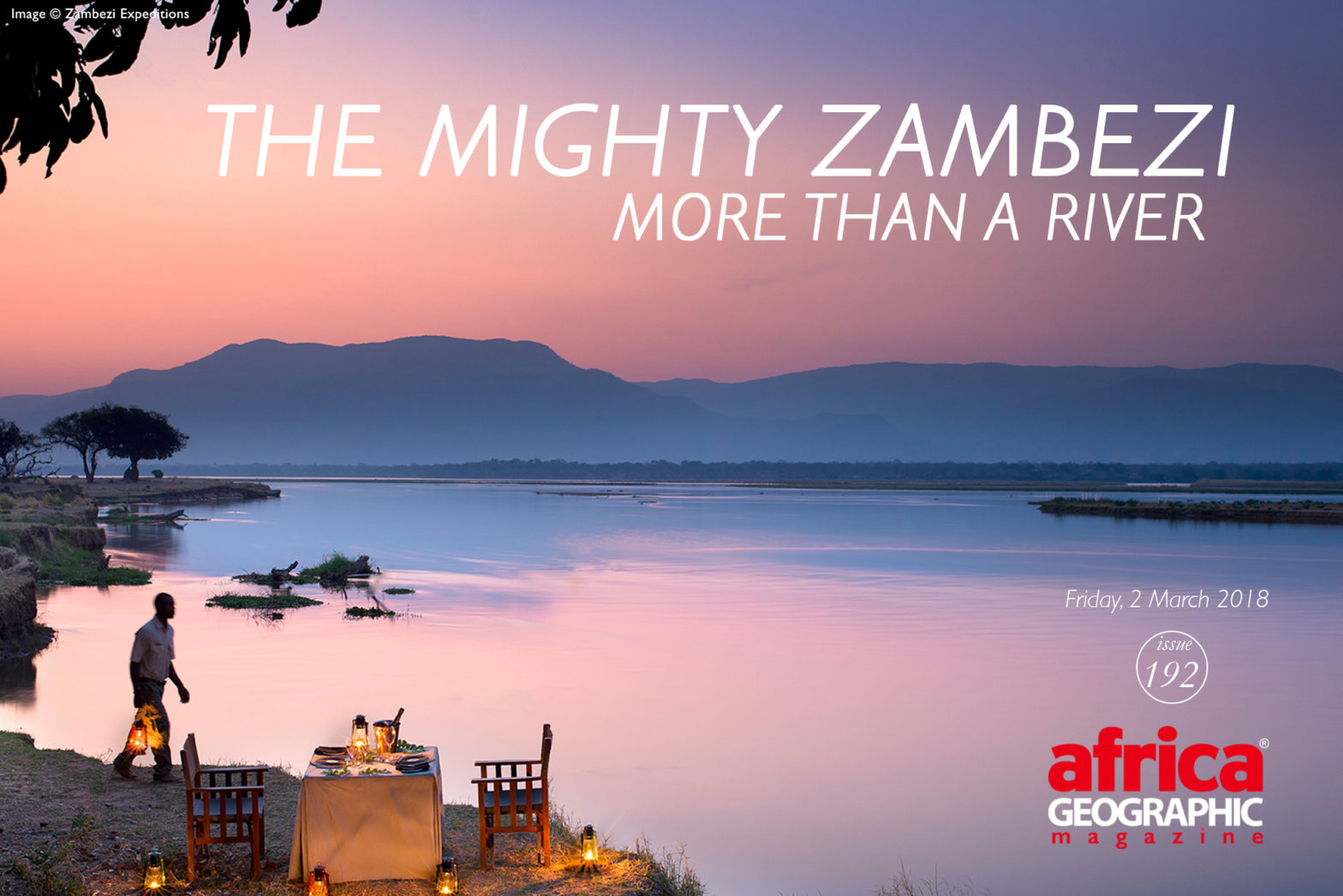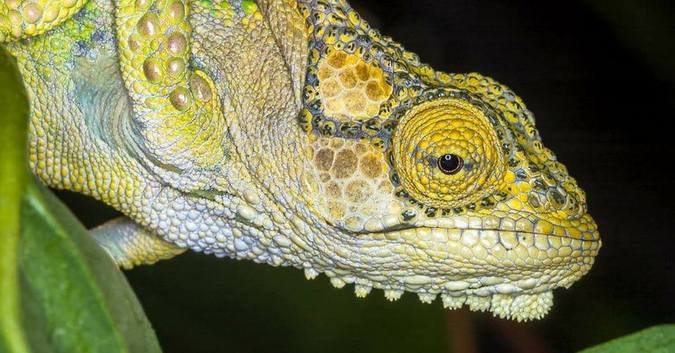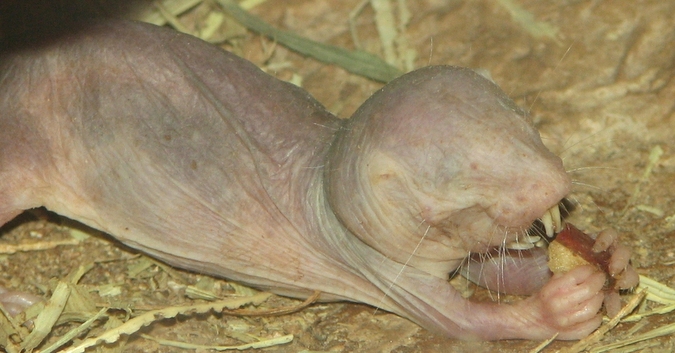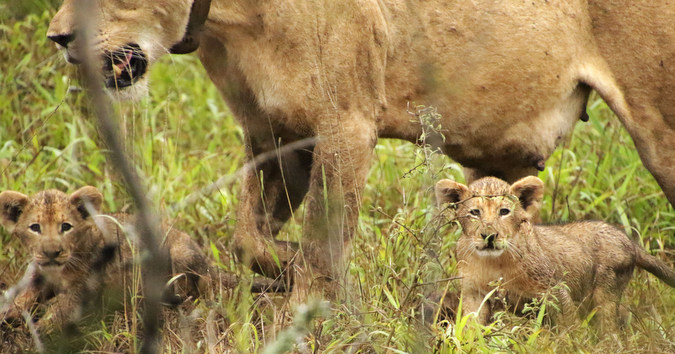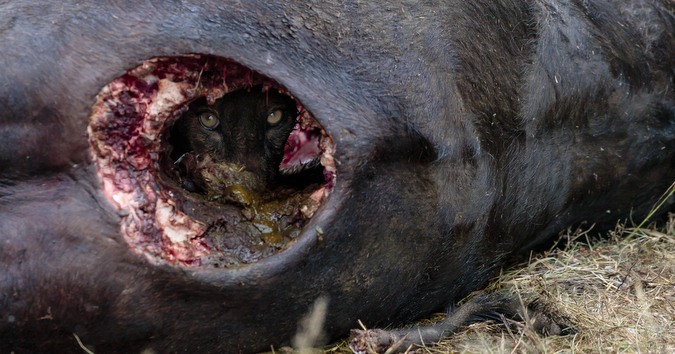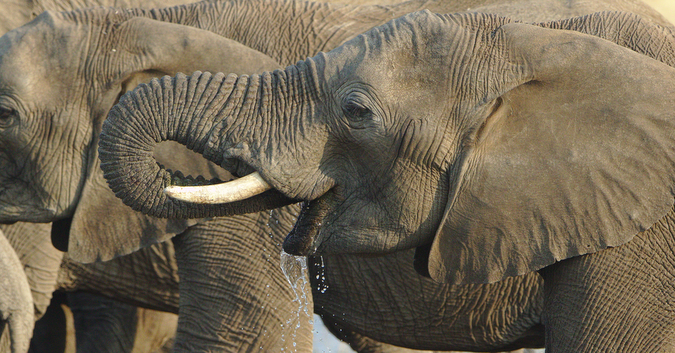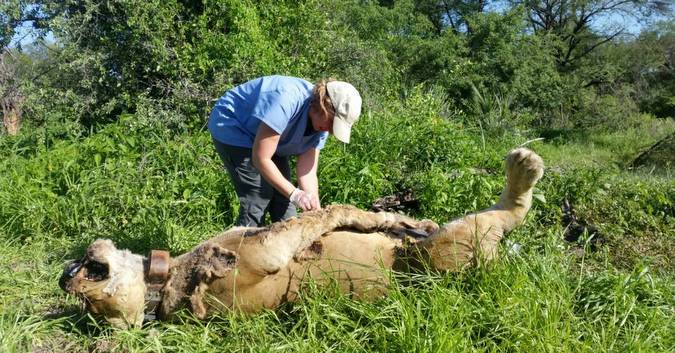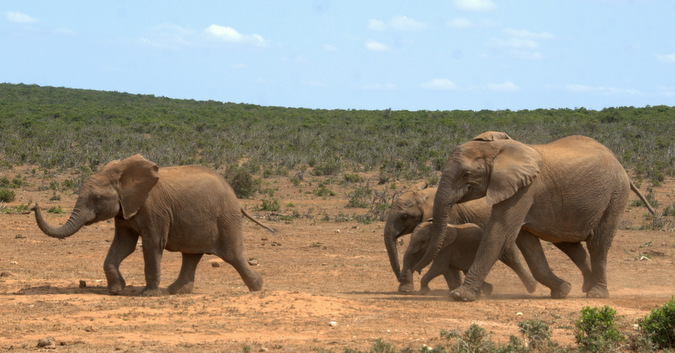Some imagery that comes to our screens can be tough to stomach, and every now and then Africa really tests one’s emotional make-up.
Category Archives: Natural history
Zambia hippo cull via trophy hunting not as high as 2,000, says minister
The Zambian government on Tuesday denied reports that it has authorised the culling of 2,000 hippos in the Luangwa Valley.
Forest hornbills being decimated in Ghana
Six out of eight Ghanaian forest hornbill species have shown significant population declines due to uncontrolled hunting, according to a long-term research project.
Zambia reinstates plan to cull 2,000 hippos
Zambian authorities have overturned their 2016 decision to suspend the culling of up to 2,000 hippos in Luangwa Valley.
Elephant cow with calf saved from snare
An elephant cow, with a 2-week-old baby in tow, needed all the help she could get after sustaining a serious injury from a poaching snare.
How cheetahs modify prey handling behaviour to outsmart lions and hyenas
Cheetahs in the Serengeti National Park change their behaviour when handling large kills based on the threats presented by lions and hyenas, according to researchers.
Ranger forces strengthened in Mozambique
On 16 May 2018, 39 recruits, of which three are women, celebrated their graduation as rangers during a passing out parade held in the Limpopo National Park, Mozambique. This follows the successful completion of a gruelling eight-week ranger training course presented by the Southern African Wildlife College, that prepared the new recruits for their stand against wildlife crime in the various conservation areas to which they will soon be deployed.
Terminally ill Vietnamese find comfort in rhino horn
A recent study has revealed that the reasons why the Vietnamese buy illegal rhino horn is not only for medical and health-related reasons, but also as a form of comfort to those that are terminally ill.
Tanzania invites bids for logging in Selous to pave way for huge hydropower plant
The Tanzania Forest Services (TFS) has invited tenders for large-scale logging in the Selous Game Reserve, a world-renowned wildlife area, where it plans to construct a large hydropower plant.
9 Fascinating facts about black-footed cats
Here are 9 facts about the smallest species of wild cat in Africa, the black-footed cat – also known as the small-spotted cat.
Kenya to fast-track laws to make wildlife killing capital offence
Kenya will fast-track laws to make wildlife poaching a capital offence as part of the country’s bid to conserve flora and fauna.
Attacks by captive carnivores – the stats revealed in open letter to minister
A formal letter to the Minister of Environmental Affairs from some of the top wildlife NGOs in the country about the captive carnivore interactions in South Africa. Records show that at least 37 incidents of captive carnivore attacks have occurred since 1996, affecting no less than 40 victims.
Identifying venomous snakes: How hard can it be?
Identifying venomous snakes is a lot more complicated than you’d think. There aren’t any hard and fast rules to distinguish a venomous snake from a non-venomous snake in southern Africa, and many people get bitten by snakes that they misidentify as ‘harmless’. Here we look at some misconceptions when it comes to venomous and non-venomous snake identification, and what to do when you encounter a venomous snake.
SA hunters expelled over canned lion hunting
Two South African hunting associations that embrace canned lion hunting have lost an appeal to retain their membership to Europe’s top hunting organisation, and have been thrown out of the International Council for Game and Wildlife Conservation for breach of policy.
Giraffe survives despite deformed jaw
Despite a deformed jaw, this giraffe cow has been able to adapt and survive in the Kruger National Park.
Should businesses pay to use animals in their logos and marketing efforts?
Many charismatic species such as elephants, lions, tigers and pandas face the threat of extinction, despite being held up as the poster characters for conservation.
Wild black rhinos to return to Chad after 50-year absence
An unprecedented collaboration between the South African and Chadian Governments, SANParks and African Parks, is enabling the translocation of critically endangered black rhinos from South Africa to a secure park in Chad on the 3rd May, reintroducing the species to the country after almost fifty years of local extinction.
Lion mass slaughter house
The Blood Lions team and other environmentalists reacted with horror to reports that a lion slaughterhouse was established ‘overnight’ on a farm outside Bloemfontein.
Impalas cry wolf, so say zebras!
It turns out that impalas are the drama queens of the African bushveld, and other species know it, and don’t take their predator alarm calls too seriously.
Wild grey parrot trapping methods are ruinous, says new research
A research paper has investigated how different capture methods and other aspects of the grey parrot trade, other than just the actual volume of birds taken from the wild, can affect sustainability of harvest.
Another collared elephant shot outside Zim national park
Hunters in Zimbabwe have shot dead a bull elephant collared by scientists for research purposes, the second such killing in a month, a conservation group says.
Wild dogs return to Gorongosa after decades of absence
Wild dogs will soon roam free in Gorongosa National Park in Mozambique for the first time in decades.
Witnessing an elephant relocation in northern Kenya
We get an insiders view as to what happens during the relocation process of an elephant heading to a new home from Lewa to Tsavo in Kenya.
Africa comes out tops in megafauna conservation survey
Safari tourism instrumental as African countries dominate as best worldwide in large mammal conservation, according to study.
Art safari Q&A: What will I learn on my art safari?
Artist Alison Nicholls answers some frequently asked questions regarding the Africa Geographic Travel art safaris that she runs in the Kruger National Park and Madikwe in South Africa.
Taiwan to revise laws for complete ban in ivory trade from 2020
Taiwanese officials are working to revise regulations so that a solid ban against trade in ivory can be put into force in 2020.
Shoebill – 7 reasons to love this dinosaur of birds
The shoebill (Balaeniceps rex) looks like a bird that belongs in the prehistoric age. Found in the marshes of East Africa, the shoebill is classified as vulnerable and is a bucket-list sighting for any avid birder. Here are seven reasons to love this big bird.
Britain to ban sale of ivory items, regardless of age
With a prohibition on the sale of nearly all antiques containing ivory, the new legislation will create the toughest ban on ivory in Europe.
Macro photography: Capturing a new world
Environmental photographer and filmmaker, Sam Cox, explains his passion for teaching the art of macro photography to international volunteers through African Impact’s Wildlife Photography & Conservation programme. The programme offers volunteers the opportunity to gain practical experience in wildlife photography while helping to raise awareness of environmental and conservation issues in South Africa’s Greater Kruger area. Here, he shares …
Giant rats: A pangolin’s best friend
The pangolin, the world’s most trafficked animal, might have just found a new best friend – the African giant pouched rat.
Hunting causes life-threatening build-up of toxic lead in vultures
Research in Botswana has revealed that fragments of lead from recreational hunter ammunition are finding their way into vulture bloodstreams, and represent a significant threat to these critically endangered scavengers.
Giant elephant killed by hunter – despite research collar
Giant large-tusked elephant (with research collar) removed from the gene pool by a Russian hunter in Zimbabwe.
R.I.P. Sudan – last male northern white rhino
It is with great sadness that Ol Pejeta Conservancy and the Dvůr Králové Zoo announce that Sudan, the world’s last male northern white rhino, age 45, died at Ol Pejeta Conservancy in Kenya on March 19th, 2018.
5 Facts you did not know about African wild dogs
Many will know that Africa’s wild dogs (Lycaon pictus) require vast areas to roam, hunt cooperatively to run down their prey and regurgitate food for pups and other pack members. But there are other remarkable facts about these beautiful animals that perhaps you didn’t know.
Opinion: Timbavati increases conservation levy to fund anti-poaching and other costs
An opinion piece that touches on finding ways to increase financial contribution to the conservation effort in the Greater Kruger.
The angry hippo and a tragic Mara River crossing
Despite the fact that they are known to have an aggressive nature and displays unexpected behaviour, a cold-blooded kill by a hippo is rarely caught on camera in the wild.
Unique sighting: Cheetahs in group mating frenzy
A unique sighting of a coalition of cheetahs trying to mate with a female cheetah in Maasai Mara National Reserve is captured on camera.
Research: Are there too many elephants in Botswana?
Botswana’s researchers contribute to the debate surrounding large elephant populations and their impact on the environment in southern Africa.
Trump administration to allow elephant trophy imports on “case-by-case basis”
The U.S. government will allow hunters to import elephant trophies on a “case-by-case basis”, breaking the president’s pledge.
Fantastic sighting: Honey badger versus jackals
Black-backed jackals receive an unwelcomed guest in the form of a honey badger who was keen to get a taste of a giraffe carcass.
The Sad 5: Endangered animals you don’t see in the headlines
With the lion’s share of international hype seized by flagship species, lesser known endangered animals seem to succumb to the shadows. These five species are among Africa’s most endangered, yet many people don’t even know they exist.
11 Leopard facts you need to know
Discover 11 facts about the African leopard – the most secretive and elusive big cat and the most popular request during a safari game drive
The Mighty Zambezi: More than a River
She goes from lazy and beguiling to a raging beast capable of pounding a man and his ambitions into submission. Indeed, the Zambezi River is quite a lady… Most people know the Zambezi as that intoxicating cauldron of the elements and humankind at Victoria Falls – where that massive river inhales and forces itself into …
Breeding project to save the Knysna dwarf chameleon
The Knysna dwarf chameleon is a species in need of rescuing after devastating fires destroyed most of their habitat in Knysna, South Africa.
Could naked mole-rats live forever?
Naked mole-rats are weirdly spectacular – they are bare-skinned, wrinkly and buck-toothed, and they live in large underground colonies in East Africa where only the queen breeds, with a few selected males. Even more spectacular is that research has shown that naked mole-rats do not age in the same manner as other mammals, and in fact show little to no signs of ageing, and their risk of death does not increase with age.
Lion relocation success: Somkhanda lions reveal their cubs
Four cubs have been spotted recently, sticking closely to their mom, at Somkhanda Community Game Reserve in KwaZulu-Natal, South Africa. This is a true success story around wild lion and their translocation to one of the only community-owned reserves in the country.
Gory splendour: Lion cub and buffalo carcass
A greedy lion cub wants the buffalo carcass all to itself!
17 Elephant facts you need to know
The African elephant (Loxodonta africana) is the largest land mammal in the world and one of nature’s great ecosystem engineers, being a major contributor to maintaining the balance between wooded and grass ecosystems. Here are 17 fascinating facts that you need to know.
Mass poisoning incident leaves lions, vultures dead near Ruaha
A mass poisoning incident in the Wildlife Management Area just outside Ruaha National Park has left six lions and over 70 vultures dead.
Can elephants run, or do they just walk faster?
A fascinating study has revealed that although elephants can move at considerable pace, there is a question as to whether they can run.

